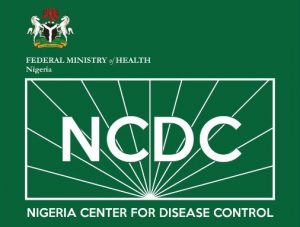Fear As Monkeypox Spreads Worldwide, Rattles WHO, U.S, U.K.

• 92 confirmed cases, 50 suspected incidences in 12 countries
There are concerns as monkeypox, for the first time, spreads worldwide, rattling the World Health Organisation (WHO), United States (U.S.) and United Kingdom (U.K.).
WHO, yesterday, said the recent outbreaks reported across 12 countries are atypical, occurring in non-endemic countries. Monkeypox, rarely seen outside Africa, has been found in recent weeks in Europe and the United States. Ten other countries, including the U.S., Portugal, Spain and Canada, have also detected cases.
WHO, in a statement, said as of Saturday, 92 cases and 28 suspected cases had been identified in 12 countries outside of those African nations where it is endemic. It said 50 pending investigations and more cases are likely to be reported as surveillance expands.
There has been one confirmed case in the United States — a man in Boston was diagnosed last week — but public health officials believe case numbers will soon increase.
Though only occasionally fatal, the speed at which the monkeypox virus is spreading has raised fears of another pandemic that would further strain health systems already stretched thin by COVID-19.
Also, US President, Joe Biden, yesterday, raised the alarm about monkeypox, saying: “Everybody should be concerned.” WHO said it was working with partners to better understand the extent and cause of an outbreak. The virus is endemic in some animal populations in a number of countries, leading to occasional outbreaks among local people and travelers.
Monkeypox is usually associated with travel to Central or West Africa, but some of the cases that have been occurring outside these countries have had no travel link.
It does not spread easily between people, but it can be spread through: touching clothing, bedding or towels used by someone with the monkeypox rash; touching monkeypox skin blisters or scabs; and the coughs or sneezes of a person with the rash.
If one gets infected with monkeypox, it usually takes between five and 21 days for the first symptoms to appear.
Symptoms include fever, headache, muscle aches, backache, swollen lymph nodes, chills and exhaustion. A rash can develop, often beginning on the face, then spreading to other parts of the body. The rash changes and goes through different stages – a bit like chicken pox – before finally forming a scab, which later falls off.
However, the disease can be more severe, especially in young children, pregnant women, and people who have weakened immune systems.
UK’s Health Secretary, Sajid Javid, said on Friday that the country was stocking up on smallpox vaccine doses to help protect some groups against the virus.
A smallpox jab offers some good protection against monkeypox since the two viruses are quite similar.
Meanwhile, the Nigeria Centre for Disease Control (NCDC) said it has been officially notified by United Kingdom (UK) authorities of a confirmed case of monkeypox with a connection to Nigeria.
The NCDC, in a statement, said: “We would like to provide some more details about this case. On May 7, 2022, NCDC was notified by the UK International Health Regulations’ (IHR) national focal point of a case of monkeypox detected in a patient with recent travel history to Nigeria.
“The individual is a UK resident who arrived in Nigeria on April 20, 2022, travelled to Lagos and Delta States during the time spent in Nigeria, departed Lagos on May 3, 2022 and arrived in the UK on May 4, 2022.
“While in Nigeria, the case did not report being in contact with anyone with symptoms of monkeypox or other illness with rash. The diagnosis of monkeypox (West African clade) was confirmed by PCR in the UK on May 6, 2022. The patient is currently stable and receiving care in the UK.”









